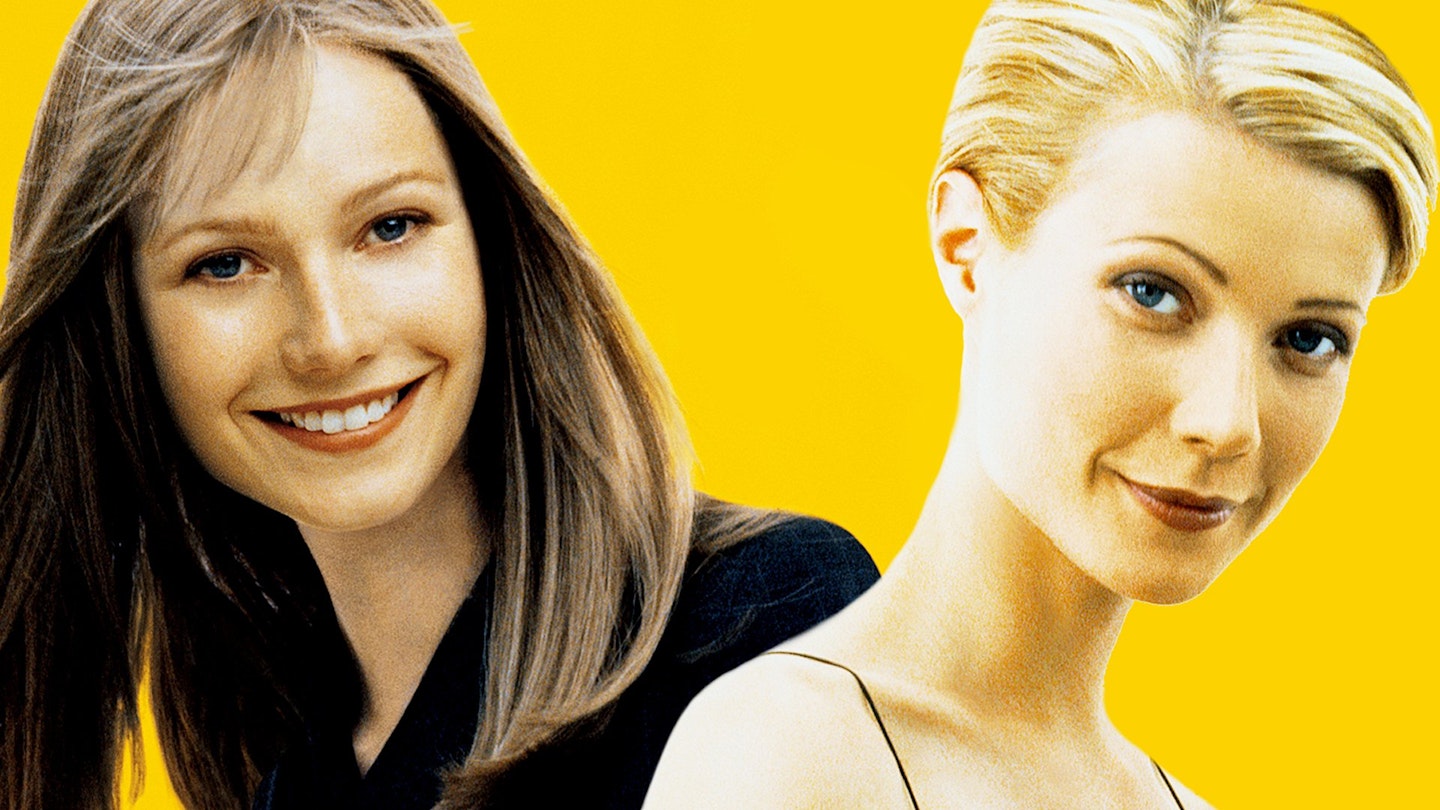Former actor Howitt (a.k.a. Joey in Bread) takes the hopelessly romantic notion that one right love is out there, fated somehow to cross your path. Then he plays a clever game of "what if?" with it, juggling one set of characters through two alternate plot lines of love, unprotected sex, lies and destiny.
Paltrow (refined English accent down pat) is London-based PR gal Helen, who arrives at work one day to be told she's sacked. Meanwhile, her would-be novelist lover Jerry (Lynch) is keeping their bed warm having duplicitous rumpy with the absurdly bitchy Lydia (Tripplehorn). Homeward bound early, Helen catches the Tube (just getting through those sliding doors), meets the charming James (Hannah) and arrives to catch Jerry with Lydia, a chain of events precipitating major changes for the better in Helen's life. Perhaps.
A reversal of time (and footage) leads into a parallel scenario in which the sliding doors slam in her face, Helen misses the train, doesn't meet James, and arrives home later, after Jerry's concealed the evidence of infidelity. The deceived Helen thus carries on, out of the loop, with bounder Jerry.
Sound tricky? It is, and all a little too cutely so, the switches back and forth between realities ever more contrived and eventually tiresome, prompting giggles of relief as the storylines painfully draw towards a soap operatic convergence. Thankfully, one Helen changes her hairstyle early on, so we know which universe we're in as the same people are forever rubbing shoulders in the same watering holes or just missing each other in Howitt's precision-cut scheme and interchangeable settings. No wonder the two Helens begin experiencing the woozy, deja-vu confusion of a new arrival in The Twilight Zone.
Paltrow and Hannah, who have the advantage of playing characters that are kind, funny and giving, are lovely. Lynch and Tripplehorn are not. Okay, we're not supposed to like them, but too much acquaintance with their laboured ghastliness drags the film down. There's also one serious fallacy here: nobody ever met a decent catch on the London Underground. But this should go down a storm with folks who still cherish the hope that the solution to all their problems is just around the corner or in the next lift.
